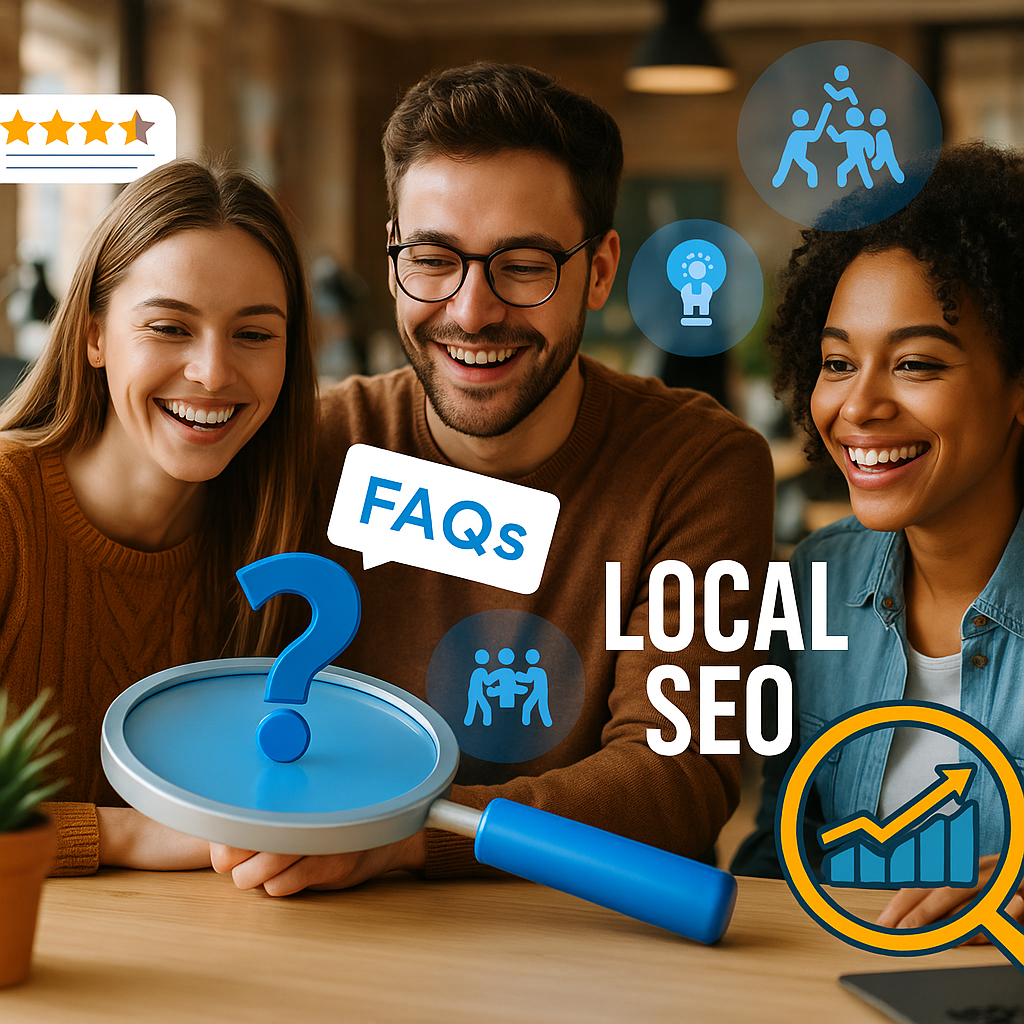How an FAQ Page Can Help Improve Your Small Business Website
Creating a strong website is important for any small business, and one of the most useful tools a website can have is a well-designed FAQ page. At WebWorks Media, we have seen firsthand how businesses save time, handle more customers, and improve online visibility by getting this one page right.
A Frequently Asked Questions page may seem basic, but it helps answer common concerns while supporting bigger goals like customer loyalty and better search rankings. If you are a small business trying to grow online without burning out your customer service team, this guide is for you.
Let’s talk about how effective FAQ page optimisation can work for both people and search engines.
Why Small Businesses Should Care About FAQ Page Optimisation
When people visit your website, they often have questions: about pricing, shipping, booking, or refunds. If they cannot find answers quickly, they may leave. That’s where FAQ page optimisation comes in.
A good FAQ page should be clear, quick to read and easy to find. It saves time for both the visitor and your support team. Instead of handling dozens of the same emails every day, you can point people to a webpage that explains everything up front.
This builds trust, too. When you answer questions before someone even asks, it shows that you want to make the buying process easier, and that makes customers feel more confident.
From an SEO angle, FAQ pages can also be very helpful. Google loves well-structured content with useful information. If your page uses the right structured data and common search keywords, there’s a good chance your answers could appear in Google’s rich results.
How an FAQ Page Can Reduce Customer Support Workload
Every small business owner knows how time-consuming it can be to repeat the same explanations over and over. Whether you’re a local cleaner, a gym owner or a florist, your customers often ask similar things.
A strong FAQ page acts like a 24/7 help desk. If nine out of ten calls are about changed hours, payment options or booking methods, your page can stop those calls before they even happen. That gives your team more time to handle real problems that need a proper conversation.
The trick is writing your FAQs in a way that sounds friendly, but still gives clear answers. Think about the questions that come up the most and answer them in a direct but helpful tone. Use simple words. Be honest and open. Keep each answer short and straight to the point.
FAQ Page Optimisation Tips that Work
Great FAQ pages do not just list questions one after the other. They’re designed so people can scan, click and find exactly what they need in seconds.
Here’s how we recommend small businesses approach FAQ page optimisation:
1. Sort topics by category
Group your FAQs under basic headings like ‘Shipping’, ‘Returns’, ‘Scheduling’, or ‘Billing’. This makes it easier for readers to jump to the section they care about.
2. Use clear headings
Each question should be phrased the way a customer might ask it. That means writing something like: “How do I return something I bought?” instead of “Return Policy Information (Section 03.c)”.
This helps real people and gives a small SEO boost, too, since common questions are usually popular search terms.
3. Add internal links
If one answer relates to another, say so. For example, if a delivery question refers to your cancellation rules, link to that section or page. This keeps visitors on your site longer and improves their navigation.
4. Use accordion tabs or collapsible menus
Rather than showing every answer on screen, use tabs that expand when clicked. This keeps the page tidy and faster to load, especially on phones.
5. Keep updating based on real questions
Your business will grow. Your services may change. Your customers will change. Review your FAQs every couple of months and delete or update anything that is no longer helpful.
Optimise FAQ Content for Better Context and Clarity
For your FAQ section to shine, you should also think about how to optimise FAQ content to work with your broader website.
People scan for answers fast. That means your content needs to be direct and built for clarity.
Avoid long explanations and technical words unless needed. Write like you’re explaining to someone who just walked into your shop and asked the question face-to-face.
Also, use keywords sensibly in your questions and answers. If customers often Google “how to book a repair appointment in Kent”, use a similar phrase somewhere. It helps Google link your FAQ content to what people are already searching for.
The SEO Benefits of Structured FAQ Content
One powerful SEO benefit of quality FAQ content is that it can appear directly on search engine results pages. This makes you more noticeable and clicks more likely.
Google often turns clear questions into “featured snippets”, which are short text results shown at the top of the page. You’ve probably seen them appear in the ‘People also ask’ boxes.
If you add the FAQ schema to your HTML, your page has a good shot of being picked up for these rich results.
That said, it’s not just about adding code. The structure of your content matters too. Each question should be formatted as a heading, with a short answer beneath it. When combined with schema tags, this makes your FAQ section easier for both people and search engines to understand.

Building Trust Through a Thoughtful FAQ Section
Trust is key for small businesses. A solid reputation brings in repeat customers and word-of-mouth referrals. One way to build that trust online is by being upfront. Think about the awkward stuff, and answer it.
For example:
- Do you charge cancellation fees?
- How do refunds work?
- What happens if you’re late for a job?
By tackling these questions openly in your FAQ, you show people there is nothing to hide. This makes your business feel safe and honest before a customer spends any money.
At WebWorks Media, we often help clients rewrite their support content to be more human, direct and helpful. Don’t worry about sounding “too professional”. It’s usually better to sound calm and friendly than complicated.
Smart Ways to Organise and Optimise FAQ Content
A cluttered FAQ list is almost as bad as no FAQ at all. If customers can’t find their answers fast, they’ll leave or contact you, which means your page isn’t doing its job.
To organise content properly:
- Start by choosing between a standalone FAQ page or placing small FAQ sections on each product or service page.
- If your business has multiple services, like wedding photography and product photography, it might be better to have one FAQ area per service.
- Use bullet points, accordion menus and headings. They break up text and make sure visitors can scan quickly.
Here at WebWorks Media, part of how we help small businesses improve web content is by checking how customers use it. We can find out which questions get clicked, which ones get ignored, and where people give up.
Use this kind of feedback to improve your content. Drop boring answers. Expand useful ones. Adjust how they appear on mobile. A little effort can make your site feel faster, smarter and easier to use.
How to Keep Your FAQ Section Working for You
Your FAQ page should never stay frozen. It should grow along with your business.
Ask your staff which questions people keep asking on the phone or by email. Add those to the FAQ list.
Check your reviews and comments too. If several people complain that refunds are slow, update your FAQs to clearly explain how the process works and how long it takes.
Always use simple English and keep the tone friendly. Try answering questions like you’re chatting with a customer who’s just walked through the door.
Make sure your FAQ is easy to find from the homepage. If you hide it five clicks deep, it won’t get used by humans or search engines.
Make Your Website Work Harder with a Smarter FAQ Page
A great FAQ page is more than a list. When built the right way, it saves time, helps your customers, and boosts where your site appears in searches.
FAQ page optimisation is a smart step for any small business that wants to grow and serve people better. It takes the weight off your support staff, gives clear answers, and makes your website more helpful overall.
At WebWorks Media, we recommend every business owner take the time to write and organise their FAQ section. It’s a small part of your website that can make a huge difference.
Want to make your site easier to use and easier to find online? Start by improving your FAQ page today.













